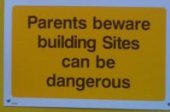I’ve been thinking about website usability lately, and this recent blog post over on Signal vs Noise really struck a chord with me. It’s the first time I’ve seen the idea of usability expressed so succinctly:
“It’s about putting yourself in the other person’s shoes. It’s about looking into the future, foreseeing any potential obstacles, and removing them. And that’s a great way to get people on your side.”
I think when you get down to it, if you’re building a new website, application or physical product, those are the important things. Whatever you’re creating, it needs to be simple to use. Like my iPhone, it should just work.
That applies to copywriting too, of course. It’s why you should should always consider every sentence – every word, in fact – really carefully. First of all, is it necessary at all? Second, assuming it is, have you expressed whatever you’re trying to express clearly and succinctly as possible?
While I’m on the subject, I think Dare Obsanjo makes a good point about introducing new features to your product, service of website:
“If a user can’t find the feature, it might as well not exist”
I agree completely. You can cram your website full of information. You can make your product full of cutting edge features. But if poor usability means people can’t find that information or use those features, then really … what’s the point?
Using capital letters correctly isn’t rocket science. Most of us get taught the basics of how to use them at school, and it’s reasonably straightforward.
You know, you should start names and titles with capital letters. You should capitalise the word “I”. That sort of thing.
Ok, so it’s not quite that simple in practice. In fact, it can be quite complex. There are lots of exceptions to rules, and lots of situations where the rules aren’t perfectly defined.
For instance, I usually capitalise only the first letter of the first word in a title. Others reckon that’s just plain wrong, and capitalise the first letter of every word.
In that sort of situation, I honestly don’t think it really matters what you do, as long as you’re consistent. So you should adopt a convention and stick to it.
Getting it wrong makes you look silly
Some people seem to get capital letters hopelessly wrong. Because they’re not sure how to use them, they insert them haphazardly, hoping that at least some of them will turn out to be correct.
 This approach doesn’t work. Rather like the greengrocer’s apostrophe, it tends to make you look a bit silly.
This approach doesn’t work. Rather like the greengrocer’s apostrophe, it tends to make you look a bit silly.
Random capital letters just create ungainly speedbumps in otherwise perfectly normal sentences.
Check out these examples. The first one’s from the Evening Standard. Ok, English isn’t the new owner’s first language, but what on earth is so important about day Three that it needed capitalising?
 I spotted the second outside a building site right near where I live.
I spotted the second outside a building site right near where I live.
If anyone can explain the difference between building sites and building Sites, I’d much appreciate it. Really, I would.
Who’s with me?
What I’m saying is simple. Capital letters matter. So use them properly. To start with, maybe stop inserting them into sentences at random.
Perhaps we need a group to campaign for the correct use of capital letters. Like the Apostrophe Protection Society and Beard Liberation Front (note the capital letters), we’d campaign on an issue that really matters.
Who’s with me?
If you’re a regular visitor, you might have noticed that I’ve made a few changes to this site over the last week or so.
Most notably, I’ve added a new homepage, so the first thing you see when you hit the site isn’t the latest in my slightly random list of posts about copywriting, but a summary of who I am and what I’m about. (If you liked the random posts, they’re still there on the blog page.)
I’ve also updated the about page (removing the faintly-scary photo taken mid-2006), and you can expect to see this blog updated much more frequently from now on.
Why the changes?
In short: as I’m getting more serious about my freelance writing work, I figure I need a slightly more serious site to reflect that.
Now here’s the longer version.
I’ve worked online for more than five years, but for the last year or so I’ve been fitting extra client work around my copywriting day job. That turned me into your classic ‘evenings and weekends’ freelance.
Much as I enjoyed the assignments I landed, squeezing them in between my day job and social life (often to the detriment of the latter) just wasn’t sustainable. And I ended up turning decent jobs down on more than one occasion, which never felt good.
So at the end of a year where I’ve added several new names to my list of happy clients just by working in my spare time, I decided to do the obvious thing: take the plunge and work for myself.
Open for business
It all means that as of January, working freelance stopped being something I do in my spare time for extra cash, and started being what I do for a living. I now have more capacity for work and can take on bigger gigs. As always, I’ll do a first class job of whatever you throw at me.
I’m both excited and a little nervous about the next few months. I think those feelings are probably pretty normal and healthy, and with some substantial work in the pipeline, it’s a case of ‘so far so good’.
What next?
If you’re a first time visitor, please do have a read of some of my previous blog posts. The tabloid headlines one is a permanent favourite, though you might also like my thoughts on Twitter and guide to finding cheap flights online (written so you don’t have to spend days looking for deals like I did).
If you’ve come here specifically because you need a web writer or someone with online experience, I might well be able to help you.
I’ll spare you the full sales pitch – just read about the sort of work I do and take a look at my portfolio. Or, if it’s easier, just drop me a line. I love getting messages and promise to reply ASAP.
And if you’re someone I know, or someone I’ve worked with in the past, thanks for stopping by. Keep in touch.
I’ll be updating this blog regularly with stuff that’ll definitely be worth reading, so check back shortly. Coming soon is a post on how to juggle freelance gigs alongside a full time job.
And finally, if you have any comments on the site then please don’t keep them to yourself. Positive feedback is great (who doesn’t enjoy a bit of ego massage?), but actually it’s usually the less sycophantic remarks that are most helpful.
Anyway, send them to me, leave a comment on this post … I don’t mind how you get them to me, I’ll just be eternally grateful that you took the time.


